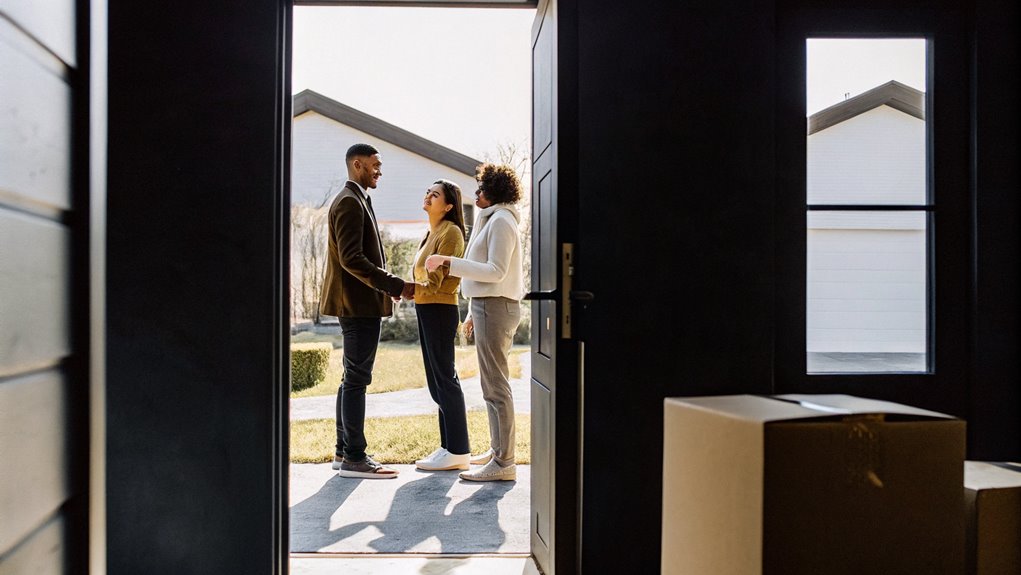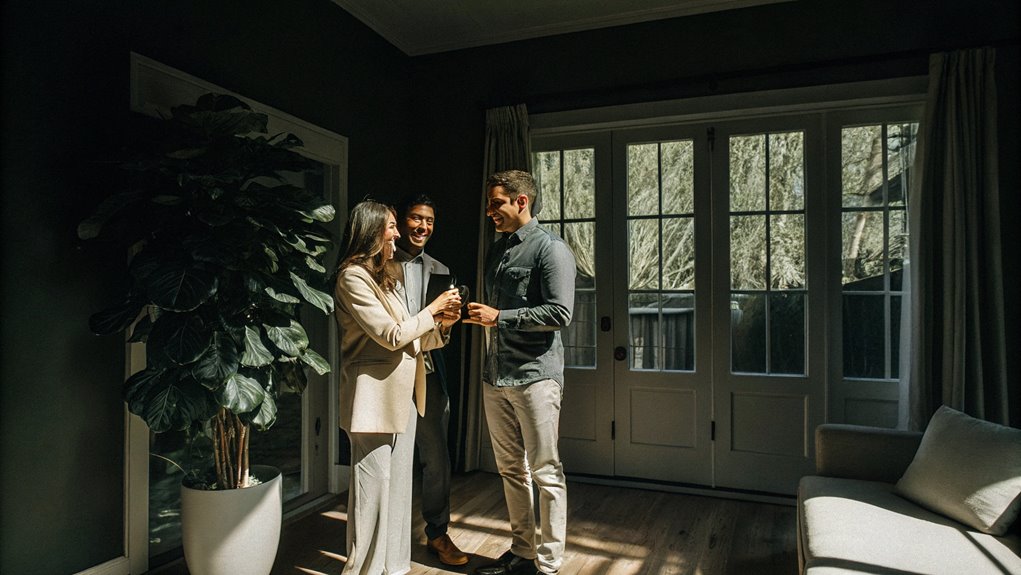If you wait too long to buy a home, it can hurt your wallet. Think of it this way: A house that costs $400,000 now will cost more next year. You'll also spend money on rent while you wait.
Home prices go up each year. A house can even sell in less than a week! When you wait, two bad things happen. First, homes get more costly. Second, bank loans get more costly too.
The smart choice is to buy when you're ready. Don't try to guess when prices will drop. If you can buy now and stay in your home for many years, that's your best bet. Over time, homes often grow in value. A house you buy today could be worth much more in 20 years.
Remember: The right time to buy is when you can afford it – not when the market seems perfect.
Ready to start building equity in your own Michigan home? Get your personalized home loan quote today.
The True Cost of Waiting

Thinking about buying a house? Waiting could cost you more money than you think. While you wait for prices to drop, they often go up instead. Most homes get more expensive each year – about 4% more.
Think about this: A house that costs $400,000 now might cost $416,000 next year. That's $16,000 more! Plus, you'll keep paying rent to someone else instead of paying for your own home. The money you spend on rent is money you can't get back.
The longer you wait, the more you might've to pay. Bank loans might also cost more later. In just one year of waiting, you could lose $30,000 in home value and rent payments.
Remember: Houses tend to go up in price over time. The sooner you buy, the more money you could save.
Michigan residents, unlock the door to your new home. Request your home loan quote from Treeside Financial today.
Market Trends Never Stand Still
Real estate prices go up and down a lot. One day a house might cost more, and the next day it might cost less.
Even the smartest people can't guess what home prices will do next. Things that make prices change include how much it costs to borrow money, new buildings in the area, and how well people are doing with their jobs.
The market keeps changing all the time, like waves in the ocean.
Price Swings Happen Daily
Homes change their prices all the time. Just like going to the store, what you see in the morning might cost more or less by dinner time.
In the morning, new homes pop up for sale. By lunch, people are out looking at houses. At night, some people make offers to buy homes while others change their prices.
| When | What Happens |
|---|---|
| Morning | New homes for sale |
| Afternoon | People look at homes |
| Evening | People make offers |
While you try to find the best price, other families are out there ready to buy. If you wait too long to decide, someone else might get the home you want. Don't worry too much about small price changes. Think about what you can pay now and where you want to live for many years to come.
You might be closer to buying your home than you think
Take our 2-minute home buyer readiness quiz to see how prepared you really are – no credit check required.

Predictions Often Miss Mark
Looking at home prices each day is exciting, but guessing where prices will go is hard.
Even smart people who study homes for a living often get it wrong. No one knew COVID would change home prices in 2020. No one saw the big jump in rates coming in 2022.
Waiting for the perfect time to buy based on what others say is like playing a risky game. People who wait too long often miss their chance to buy.
The best time to buy is when you:
- Have saved enough money
- Have a steady job
- Need a place to live
- Feel ready to be a homeowner
Think about what you need right now, not what others say might happen later.
Patterns Change Without Warning
The housing market is like a roller coaster that moves fast. What we see today can be very different tomorrow. Just like the weather changes without warning, so do home prices and rules.
Think about these big changes:
- The cost to borrow money goes up and down fast. This means your house payments could cost more or less.
- More people might put their homes up for sale at the same time.
- When jobs move to new places, people move too.
- New rules about buying homes can start right away.
Don't try to guess what the market will do. Instead, think about what kind of home you need for your life. Ask yourself:
- How much space do you need?
- Where do you want to live?
- How long do you plan to stay?
These questions matter more than trying to pick the perfect time to buy. Your home is about your life, not about timing the market.
Interest Rates and Monthly Payments

When you buy a home, interest rates play a big role in how much you pay each month. Think of interest rates like a price tag on your loan. If rates go up just a tiny bit, you end up paying a lot more money over time.
Waiting for lower rates is risky. If rates go up by 1%, you can buy less house. For example, if you could buy a $400,000 home today, you might only be able to buy a $360,000 home when rates rise.
Don't get stuck waiting for the perfect rate. While you wait, houses get more costly.
Yes, you can get a new loan later when rates drop. But you can't buy a house at old prices once they go up.
Competition From Other Buyers
When you look for a home today, you're not alone. Many people want to buy the same houses you do. This means you need to act fast when you find a home you love.
Most good homes sell very fast:
- Almost half of homes sell in just one week
- About 1 in 4 buyers pay with cash and often win the house
- If you wait until the weekend to look, you might miss out
- Homes with fair prices get offers in just a few days
Don't wait too long to make an offer. While you think about it, other people are out there buying homes.
The best way to get the house you want is to look early and act fast.
Building Long-Term Equity

When you buy a home, you're starting a path to grow your money over time. Think of it like planting a tree – it gets bigger year after year.
Houses go up in value most of the time. Over 30 years, homes have grown in worth by about 4% each year. This means they keep up with rising prices and then some.
Don't worry too much about buying at the perfect time. If you buy a house for $300,000 now, it could be worth $435,000 in ten years.
Your home isn't just a place to live – it's like a piggy bank that grows bigger and bigger. Most homes double in value after 20 years.
Making Smart Real Estate Decisions
Before you buy or sell a home, learn what's going on in your area. Look at what other homes sell for. See if new stores or schools are being built nearby. Check if more people are moving to your area.
The best time to buy or sell depends on a few things. Watch if banks change their loan rates. Some times of the year are better to buy than others.
Also, look at how many homes are for sale near you.
Think about these simple facts and you can make better choices about your home.
Stay Informed, Act Wisely
Buying a home takes smart planning and good timing. You need to watch the housing market and know how much money you can spend.
Keep these simple steps in mind:
- Read housing reports each month from trusted places to see if home prices go up or down.
- Watch if more jobs and people are coming to your area, as this shows if home prices might rise.
- Know how much debt you have and keep your credit score high to get a good home loan.
- Sign up for alerts when homes you like go up for sale, and talk to local real estate agents.
The more you know, the better choice you can make. Stay alert and ready to act when the time is right.
Know Your Market Value
You need to know what homes are really worth before you buy one. This helps you make smart offers.
Look at what other homes sold for in the area. Find at least three homes like the one you want that sold in the last six months. Check their size and how nice they're inside.
A real estate agent can help you learn about home prices. They've special tools to see what homes sold for.
Home prices go up and down. They change when lots of people want to buy, or when few homes are for sale.
If you know the real price of a home, you won't pay too much.








